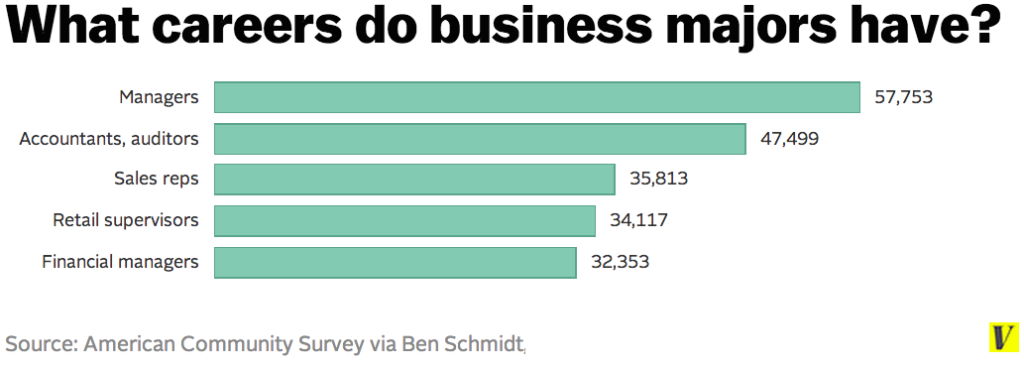
When many students choose a major, particularly one in the liberal arts or humanities, they often face questions from friends and family about “what they’re going to do” with that major once they graduate.
While a major is no guarantee that you will or won’t be qualified for a job, there are some general trends among majors that can help students understand their career options.
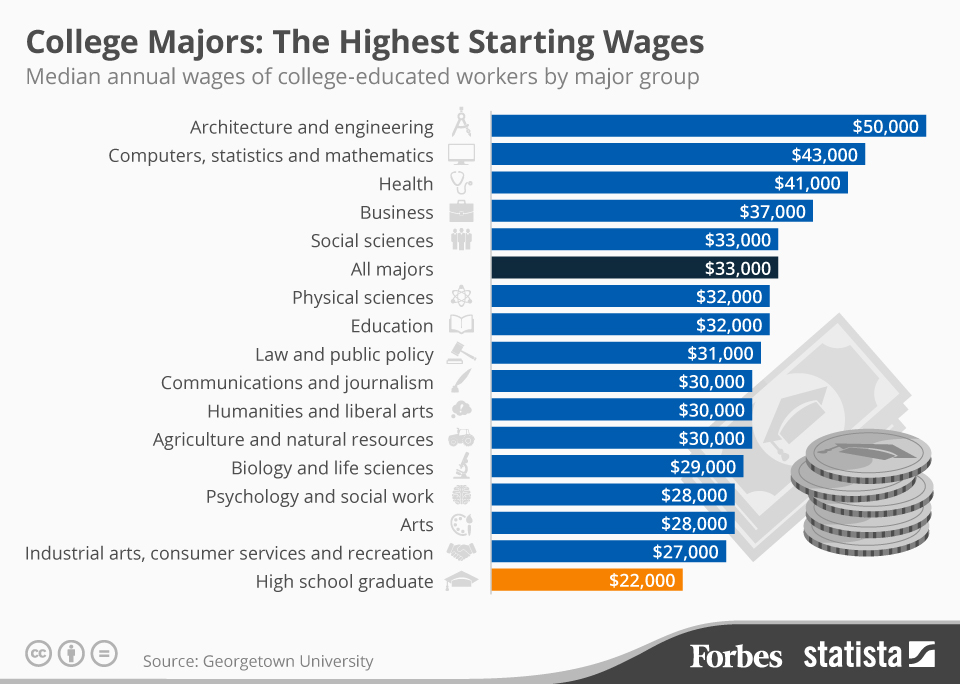
With college being such a large investment, it’s important to have a good idea of how much money you’ll likely be making once you graduate.
Knowing the starting salary of your college major can help you determine your future ability to repay student loans and help you make smart decisions about paying for college.
This infographic from Forbes shows which college majors pay the most–and the least–right out of college.
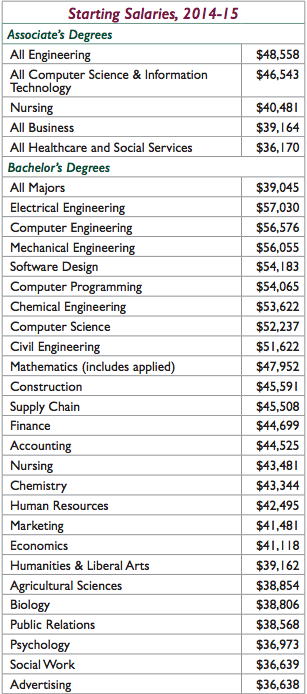
While we believe you should major in a subject you enjoy because you’ll do better if you’re interested in the material, there’s no denying that some college majors pay better than others–usually because students in these positions gain more specialized, in-demand knowledge.
According to a new study from Michigan State University, electrical engineering majors have the highest starting salaries out of college, with the average graduate making $57,030 in the first year.
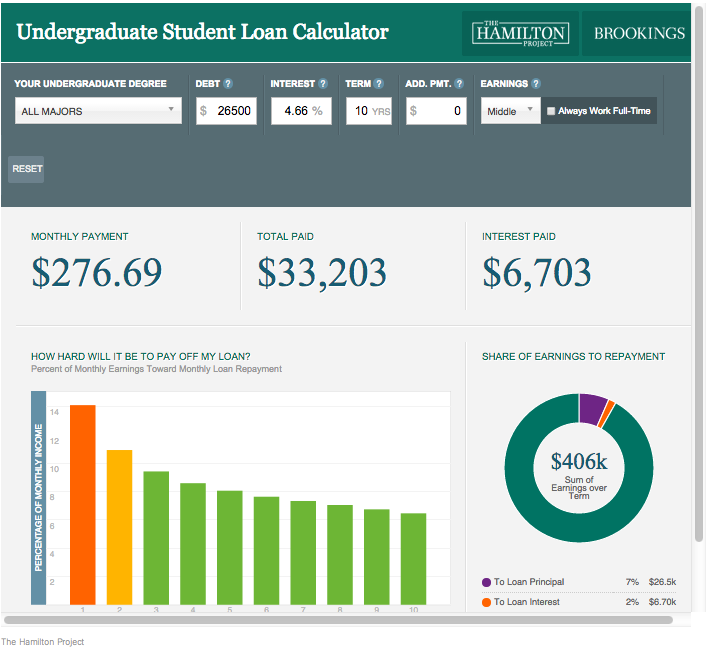
We’ve expressed that the value of your college degree is influenced heavily by several factors, including choice of major and how much debt you take on to pay for it.
And now a new calculator from The Hamilton Project makes it easier for college-bound students to understand how much their degrees will cost them over time depending on major, student loan debt, interest rates, and term of the loan.
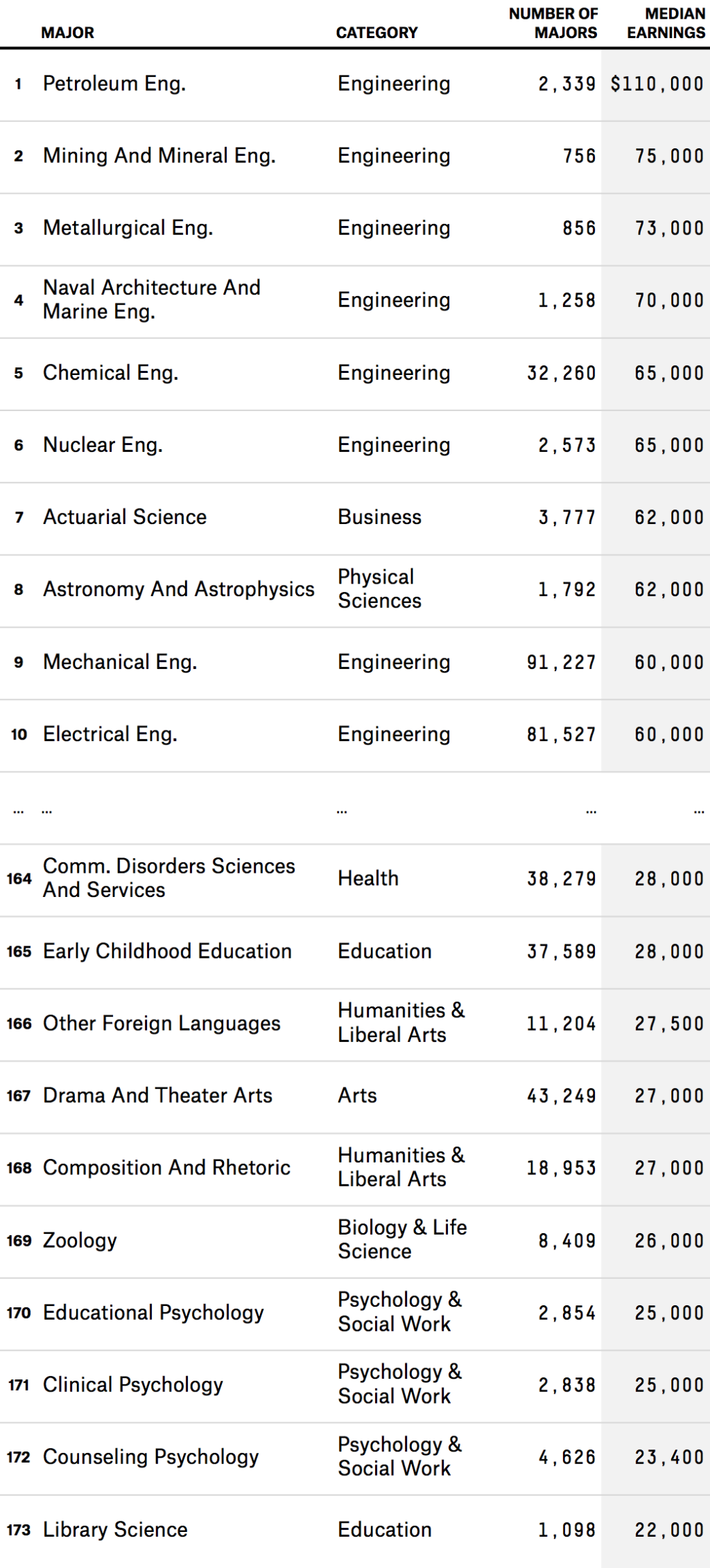
While the return on value of a college degree is at an all-time high, according to a recent analysis by FiveThirtyEight, not all degrees are created equal. As we’ve written, the return on investment of a college degree depends on many factors, including the field of study, student’s debt level, and what the graduate does with […]
When it comes to choosing a college major, we’re advocates for doing what you love and picking the area in which you’re most interested.
If you’re passionate about what you’re studying, you’re more likely to succeed both during and after college.
That being said, particularly with the rising cost of college and increasing student debt, we believe that students need to be realistic about their future prospects when making the choice to attend a college and, perhaps, go into debt to earn a Bachelor’s degree.
Good news (finally!) for young college graduates.
According to a survey released on April 16, employers said they plan to increase the number of college graduates they hire this year by nearly 9 percent.
Are humanities degrees worth the money? This great article from HechingerEd explores the role and value of a humanities degree in an increasingly tech-based society. Popular culture, too, often dismisses the value of humanities degrees. The science major asks why something works, goes an old joke; the engineering major asks how it works, the accounting major […]